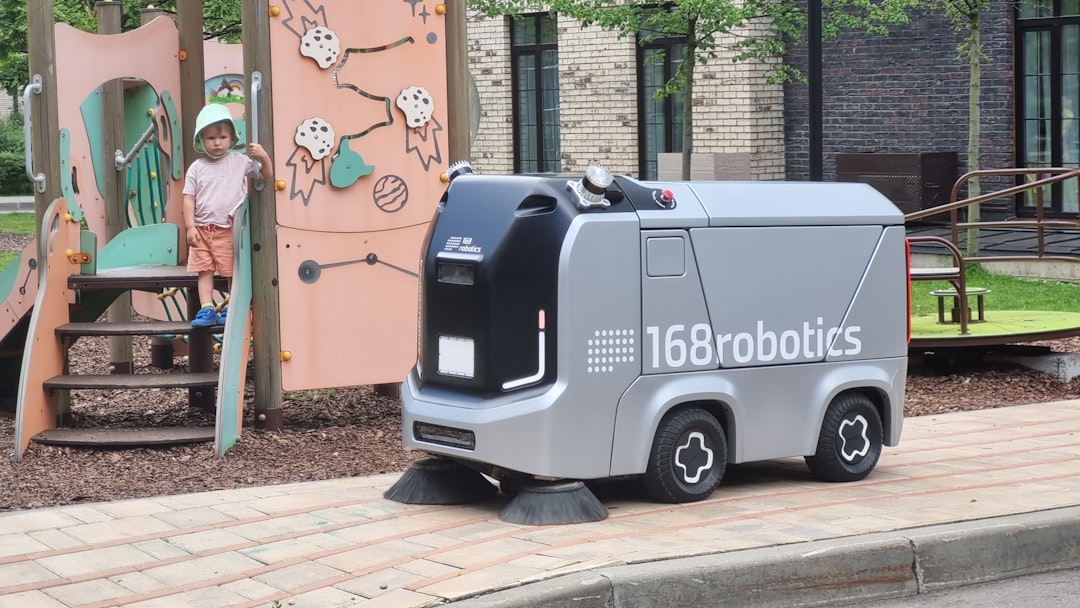The landscape of video game development has undergone a seismic shift in recent years, largely due to the advent of artificial intelligence (AI). This technology has not only transformed how games are created but has also redefined the player experience. AI-based game design leverages machine learning algorithms, neural networks, and procedural generation techniques to create immersive and dynamic gaming environments.
As a result, developers can craft experiences that are not only engaging but also tailored to individual player preferences, making each gaming session unique. The integration of AI into game design is not merely a trend; it represents a fundamental evolution in how games are conceptualized and executed. From enhancing non-player character (NPC) behavior to generating expansive worlds, AI is at the forefront of innovation in the gaming industry.
As computer enthusiasts, understanding the intricacies of AI in game design opens up a world of possibilities, allowing us to appreciate the complexity and creativity that goes into modern gaming experiences. AI systems are revolutionizing industries, for more information visit
Game balance is a critical aspect of game design that ensures players have a fair and enjoyable experience. Achieving this balance can be a daunting task, especially in complex games with numerous variables. AI-based game balance systems analyze player data and behavior to fine-tune gameplay mechanics dynamically.
By monitoring how players interact with the game, AI can adjust difficulty levels, resource availability, and even enemy behavior to create a more equitable playing field. For example, an AI system might detect that players are consistently struggling with a particular boss fight. In response, it could subtly adjust the boss’s health or attack patterns to provide a more manageable challenge.
This adaptive approach not only enhances player satisfaction but also fosters a sense of achievement as players overcome obstacles that are tailored to their skill levels. The result is a more engaging experience that keeps players coming back for more.
Automatic Game Generation
The concept of automatic game generation takes AI-based game design to an entirely new level. Imagine a scenario where an AI can create an entire game from scratch based on a set of parameters defined by the developer or even the player. This revolutionary approach allows for unprecedented creativity and experimentation within the gaming industry.
By utilizing deep learning models and vast datasets, AI can generate everything from gameplay mechanics to storylines and art styles. Projects like “AI Dungeon” exemplify this concept by allowing players to engage in text-based adventures where the narrative evolves based on their choices. The AI generates responses and scenarios in real-time, creating a unique storytelling experience for each player.
While still in its infancy, automatic game generation holds immense potential for indie developers and hobbyists who may lack the resources for traditional game development but possess creative ideas they wish to bring to life.
Implementation of AI in Game Design
Implementing AI in game design involves a multifaceted approach that requires collaboration between developers, designers, and data scientists. The process begins with identifying specific areas where AI can enhance gameplay or streamline development. For instance, developers may choose to integrate machine learning algorithms for NPC behavior or utilize procedural generation techniques for level design.
Once the objectives are established, developers must gather relevant data to train their AI models effectively. This data can include player behavior analytics, environmental variables, and even feedback from playtesting sessions. The trained models are then integrated into the game engine, allowing for real-time adjustments based on player interactions.
This iterative process ensures that the AI remains responsive and relevant throughout the game’s lifecycle.
Advantages of AI-based Game Design

Streamlined Development Process
It significantly reduces development time by automating repetitive tasks such as level creation and balancing gameplay mechanics. This efficiency allows developers to focus on more creative aspects of game design, such as storytelling and character development.
Enhanced Player Experience
Additionally, AI can enhance player engagement by providing personalized experiences that adapt to individual preferences and play styles. Moreover, AI-driven analytics enable developers to gain insights into player behavior that were previously unattainable.
Data-Driven Decision Making
By understanding how players interact with their games, developers can make informed decisions about future updates or expansions. This data-driven approach fosters a more responsive development cycle, ultimately leading to higher-quality games that resonate with audiences.
Challenges and Limitations of AI in Game Design
Despite its numerous advantages, the integration of AI in game design is not without challenges. One significant limitation is the potential for unintended consequences arising from AI decision-making processes. For instance, an AI system designed to balance gameplay may inadvertently create scenarios that frustrate players rather than enhance their experience.
Striking the right balance between challenge and enjoyment requires careful tuning and ongoing monitoring. Additionally, there are ethical considerations surrounding the use of AI in gaming. Issues such as data privacy and algorithmic bias must be addressed to ensure that players feel safe and respected while engaging with AI-driven systems.
Developers must navigate these complexities while striving to create innovative experiences that push the boundaries of what is possible in gaming.
Future of AI-based Game Design
Looking ahead, the future of AI-based game design appears bright and full of potential. As technology continues to advance, we can expect even more sophisticated AI systems capable of creating richer and more immersive gaming experiences. The rise of virtual reality (VR) and augmented reality (AR) will further amplify the role of AI in crafting interactive environments that respond dynamically to player actions.
Moreover, as machine learning algorithms become more refined, we may see a shift towards fully autonomous game development processes where AI takes on a more significant role in creative decision-making. This evolution could democratize game development, allowing aspiring creators to bring their visions to life without needing extensive technical expertise. In conclusion, the integration of AI into game design is revolutionizing how games are created and experienced.
From level generation to automatic game creation, the possibilities are endless for developers willing to embrace this technology. As we continue to explore the intersection of artificial intelligence and gaming, we can anticipate a future filled with innovative experiences that captivate players around the globe.
In a recent interview with Metaversum, experts discussed the potential impact of AI on game design, including AI-controlled level generation, AI-based game balance, and automatic game generation. The conversation delved into how artificial intelligence can revolutionize the gaming industry by creating more dynamic and engaging experiences for players. To read more about this fascinating topic, check out the full interview here.
FAQs
What is AI-based game design?
AI-based game design refers to the use of artificial intelligence (AI) techniques to automate and improve various aspects of game development, such as level generation, game balance, and even the creation of entire games.
How does AI-controlled level generation work?
AI-controlled level generation uses algorithms and machine learning techniques to create game levels automatically. The AI analyzes various parameters, such as player behavior and game mechanics, to generate levels that are challenging and engaging for players.
What is AI-based game balance?
AI-based game balance involves using AI algorithms to analyze player data and adjust game parameters, such as difficulty levels, enemy behavior, and resource distribution, to ensure a fair and enjoyable gaming experience for all players.
What is automatic game generation?
Automatic game generation refers to the use of AI to create entire games, including game mechanics, level design, and artwork. This process can significantly reduce the time and resources required for game development.
What are the benefits of AI-based game design?
AI-based game design can lead to more dynamic and engaging gameplay experiences, as well as reduce the workload for game developers by automating repetitive tasks such as level design and game balancing. Additionally, AI can help create games that are tailored to individual player preferences.











Leave a Reply